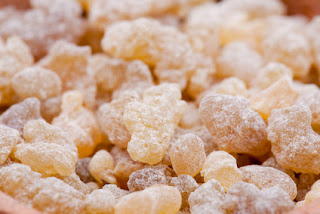
The act of fasting, or the imposition of a complete abstinence from food, is the best possible safeguard from the illnesses of the mind, body, heart and soul. Indeed Allah Azzawajjal has put both benefits for Health and benefits for Imaan in Fasting.
This post looks in brief detail at the health benefits and it is understand that fasting from a dietary perspective produces wondrous results in preventative medicine. Western cultures are only just beginning to understand how the human body undertakes healing through fasting, although this is something Muslims were taught over 1400 years ago.
In terms of physical benefits, fasting helps to soften and dissolve obstructions which have accumulated in the intestines over a number of years, which the body cannot readily absorb, or which it cannot expel easily. The main benefits in fasting arise in it being a very effective treatment for acute gastrointestinal obstructions and constipation (fasting is actually better for constipation than the use of purgatives). Dietary fasting also helps to control an excessive desire for food (eating too much, thinking of it too often, dreaming of it at night etc.), and such control balances the body’s energies.
Fasting also helps control the body’s sexual desires when a Muslim fears such desires will overwhelm him or her, and make that person commit sin; Muslim men and women who cannot marry for a legitimate reason have been instructed to fast by the Messenger of Allah (sallAllahu alayhi wasallam) as a way of helping them control their desires.
It was narrated by 'Alqama (radhi Allahu anhu) that "While I was walking with 'Abdullah (radhi Allahu anhu) he said, "We were in the company of the Prophet (sallAllahu alayhi wasallam) and he said, 'He who can afford to marry should marry, because it will help him refrain from looking at other women, and save his private parts from looking at other women, and save his private parts from committing illegal sexual relation; and he who cannot afford to marry is advised to fast, as fasting will diminish his sexual power."
Sahih Al Bukhari Volume 3, Book 31, Number 129
It is best to fast in moderation (in interrupted sequences, i.e. continuous fasting day and night is forbidden) and when it is religiously required (compulsory fasting during the month of Ramadhan). This is because the human body has a very natural need for a period where we practice abstinence from food. During this time, the stomach and digestive tract have an opportunity to relax, repair and expel toxins. As a result, any illnesses or diseases a person may be suffering from, discontinue to affect the body while it is in a state of fasting.
As for the spiritual benefits, fasting also protects a Believer from immorality and evil (that of shayateen, men and jinn), balances his/her mind and guides his or her heart to avoid possible trespassing by the devils. It also helps the Believer to perform his or her other religious obligations (such as the prayers, reciting the Qur’an, giving Zakat etc.) more consistently, humbly and beautifully. It also warms the heart to worshipping Allah at night (Qiyaam ul Layl).
Allah Almighty says in the Noble Qur’an;
“O Believers! Fasting is ordained for you, as it was ordained for those [people] before you as your expression of piety...”
[2:183].
Allah Azzawajjal also says;
“It is better for you [to fast]...”
[2:184]
It was narrated by Abu Hurairah (radhi Allahu anhu) that Allah's Messenger (sallAllahu alayhi wasallam) said, "Fasting is a shield (or a screen or a shelter). So, the person observing fasting should avoid sexual relation with his wife and should not behave foolishly and impudently, and if somebody fights with him or abuses him, he should tell him twice, 'I am fasting." The Prophet added, "By Him in Whose Hands my soul is, the smell coming out from the mouth of a fasting person is better in the sight of Allah than the smell of musk. (Allah says about the fasting person), 'He has left his food, drink and desires for My sake. The fast is for Me. So I will reward (the fasting person) for it and the reward of good deeds is multiplied ten times."
Sahih Al Bukhari Volume 3, Book 31, Number 118This is because since fasting is an act of true piety, it is considered by Allah a most beautiful devotion that brings a servant closer to his or her Lord in love and dependence, and this envelops him or her in Allah’s divine protection.
Allah the Almighty has created a very special gate of entry into Paradise, called Ar-Raiyaan, reserved only for His servants who fasted regularly in their lives. Fasting carries a unique and coveted reward with Allah Subhanahu’Watahala.







